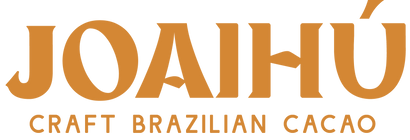Your Cart is Empty
our ethos
The rainforest is the best model for agriculture. It is the ultimate symbol of harmony and abundance.
When we begin to understand natural patterns of a forest (and then explore food production within that context) we can discover how to synchronize with the natural systems of the forest.
This work of keen observation, respect, and experimentation is the heart of creating abundance.
Our key lessons:
Observe, learn, and understand the forest.
Produce food in the forest, with the forest.
Harmonize with natural processes and incorporate them into our work
CULTIVATION
Quality chocolate starts with healthy trees. At Joaihú, we take pride in helping to change the world’s understanding of cacao cultivation. The beans that make Joaihú Chocolate are not grown on a traditional “farm". Joaihú cacao beans are grown in an ecosystem where cacao trees thrive in the shady understory of the old-growth Atlantic rainforest.
We focus on a high quality production that starts with soil health and the health of the larger ecosystem as a whole. We pride ourselves in using only organic methods of fertilization and maintenance to help our trees stay healthy and strong.
PRESERVATION
Over 90% of the Atlantic Coastal Rainforest is gone. Let's just let that sink in for a moment.
The future of Brazilian chocolate relies on immediate action to invest in the Atlantic Coastal Rainforest.
As one of the most biodiverse regions in the world, we are dedicated to preserving our home. We work with agroforestry and private reserves to implement radical approaches to farming and conservation.
Every bar of Joaihú works to protect vital ecosystems in the northeast of Brasil. We are honored to partner with INEMA, ASAS, and Parque Conduru to continue to protect and preserve the rainforest.
REGENERATION
farmer profile - Meet Manuel
In addition to our cacao production in the old growth rainforest, we are also investing in transforming degraded lands into lush foods forests with syntropic agroforestry.
This means we use holistic farming systems that, among other benefits, improve water and air quality, enhance ecosystem biodiversity, produce nutrient-dense food, and store carbon to help mitigate the effects of climate change.
As we plant, we are plating for many more generations to come.
Extraction Vs. Regeneration
Typical agricultural systems focus only on outputs and production. Our farming philosophy is based in Syntropic agriculture practices. This foundation defines a successful harvest as a result of a thriving and balanced ecosystem. Simply put: a diverse ecosystem = a successful harvest. Long term abundance is created through diversifying species and recycling biomass that is created by the natural life cycle of plants.
Rather than prioritizing economic gains or harvest quantity, Joaihú views the high quality of cacao as a direct reflection of a balanced, diverse and thriving ecosystem.
The word syntropy paints a powerful picture of a system that accumulates matter and energy, becoming more complex over time, all in order to create abundance. It is a form of process based agriculture, as opposed to input based agriculture, typical to industrial systems.
Syntropic farming seeks energetic balance in the systems its a part of. Mindful of the balance between economic, social, and environmental prosperity. Syntropic Agroforestry is planting and managing a food forest - it achieves all of the desired outcomes whilst doing a remarkable job of supporting the three ethics of Permaculture:
Earth Care
People Care
Fair Share






